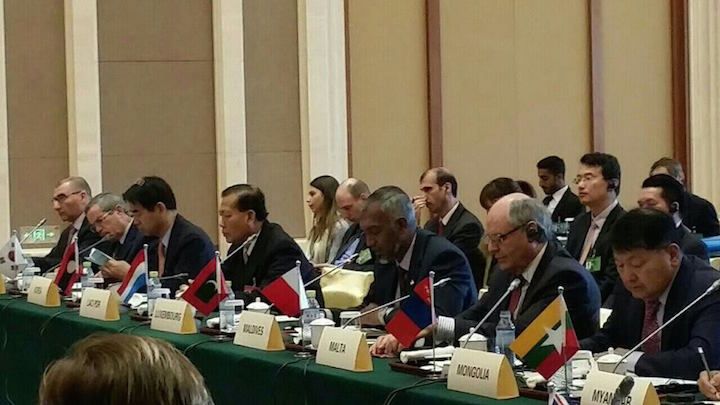Maldives hopeful of securing financing from Chinese-led bank
Speaking to reporters after returning from an official visit to China to attend the AIIB’s inaugural board of governors meeting in Beijing, Muiz said that the bank’s president, Jin Liquin, assured him of funding for infrastructure projects during an official meeting.

21 Jan 2016, 09:00
The Maldivian government is hopeful of securing financing for “mega projects” from the Chinese-led Asian Infrastructure Investment Bank, Housing Minister Dr Mohamed Muiz said yesterday.
Speaking to reporters after returning from an official visit to attend the AIIB’s inaugural board of governors meeting in Beijing, Muiz said the bank’s president, Jin Liquin, assured him of funding for large-scale infrastructure projects during an official meeting.
Jin – a former vice president of the Asian Development Bank – is “a friend of the Maldives,” Muiz said, as he had worked in the country after the 2004 tsunami.
The government will first seek loans to build a sports complex in Malé and develop infrastructure in the capital’s suburb Hulhumalé, he said.
Become a member
Get full access to our archive and personalise your experience.
Already a member?
Discussion
No comments yet. Be the first to share your thoughts!
No comments yet. Be the first to join the conversation!
Join the Conversation
Sign in to share your thoughts under an alias and take part in the discussion. Independent journalism thrives on open, respectful debate — your voice matters.




